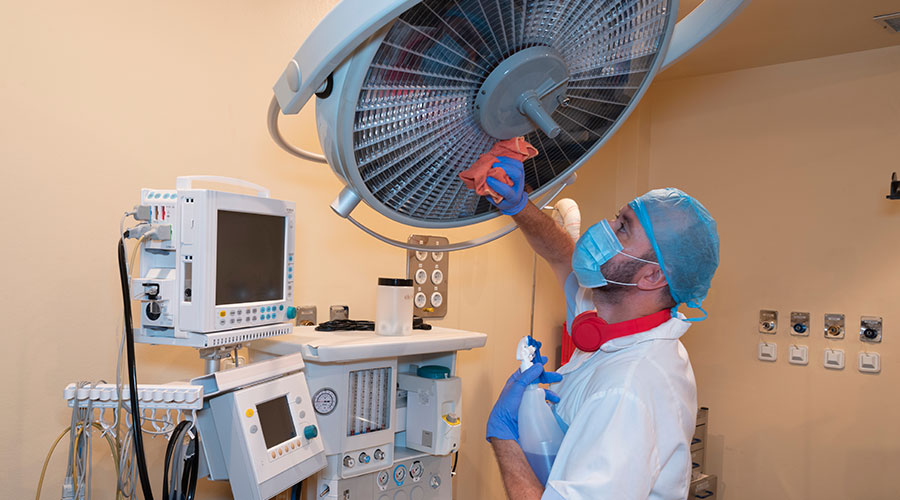Itasca, IL: Providing a healthy indoor working environment is about far more than having a window view; it is determined by many factors, including lighting, air quality, and temperature to name a few. Indoor air quality (IAQ) can profoundly affect the health, comfort, and productivity of building occupants. Although serious health problems related to IAQ are rare, many common illnesses, including influenza, as well as conditions such as asthma and allergies, are spread or exacerbated by airborne contaminants.
Understanding the sources of indoor environmental contaminants and controlling them can often help prevent or resolve building-related worker issues.
With millions of people getting ill each year, research studies reveal that germs - in the air we breathe - may be responsible for many more illnesses than was previously thought. Many diseases are transmitted through the air. Bacteria and viruses, for example, can travel through the air, causing diseases and worsening allergies or asthma. Most experts think that flu viruses are spread mainly by droplets released when people cough, sneeze or talk.
Because of their microscopic size, inhalation of as little as 1 to 3 airborne viruses can infect you. A recent study provided evidence that the smallest airborne droplets contain nine times more influenza virus than larger droplets. In addition, a study in the Journal of the American Academy of Pediatrics concludes hand hygiene and cleaning surfaces do not reduce the spread of respiratory illnesses.
Even the cleanest facilities have sources of constant contamination. Improving and maintaining cleaner indoor air can be as simple as installing air quality control systems.
Thr AeraMax® PRO series by Fellowes is uniquely designed to reduce the presence of airborne germs, allergens and odor while helping to equalize a room’s air temperature.
AeraMax® PRO air quality control systems utilize filter media and bipolar ionization to safely and cost effectively remove harmful contaminants from the air. Powerful fans within the units draw air into the system and send it through filters, which include a true high efficiency particulate air (HEPA) filter, to capture airborne contaminants, including mold spores, bacteria, virus and allergens. Additionally, an activated carbon filter absorbs odors and volatile organic compounds that can cause respiratory/neurological health issues and skin and eye irritation. A needle-point bipolar ionizer releases both positive and negative ions, enabling particle agglomeration to safely enhance the removal of these larger particles from the air.
The purified air is then blown back into the room, creating a strong recirculation of the already conditioned air. Computational fluid dynamic simulations demonstrate how this recirculation can improve thermal comfort by equalizing the room's air temperature.
About Fellowes, Inc.
Fellowes, Inc. offers an extensive range of products to equip the home and workspace, including paper shredders, air purifiers, binders, laminators, desktop accessories and record storage solutions. Fellowes products are inspired to improve productivity and enhance well-being. Founded in 1917 by Harry Fellowes and headquartered in Itasca, Illinois, Fellowes, Inc. employs more than 1,200 people throughout the world and has operations in 20 countries. Fellowes products are now readily available in over 100 countries across the globe. For more information, visit www.fellowes.com.

 On the Lookout: The Software Supply Chain as a Healthcare Cyberattack Vector
On the Lookout: The Software Supply Chain as a Healthcare Cyberattack Vector Hackensack Meridian Health & Wellness Center at Clifton Opens
Hackensack Meridian Health & Wellness Center at Clifton Opens Suffolk Breaks Ground on Expansion of White Plains Hospital
Suffolk Breaks Ground on Expansion of White Plains Hospital EVS Leadership Culture Critical in Preventing Hospital-Acquired Sepsis
EVS Leadership Culture Critical in Preventing Hospital-Acquired Sepsis Man Dies by Suicide in Emergency Department Waiting Room at Kansas Hospital
Man Dies by Suicide in Emergency Department Waiting Room at Kansas Hospital